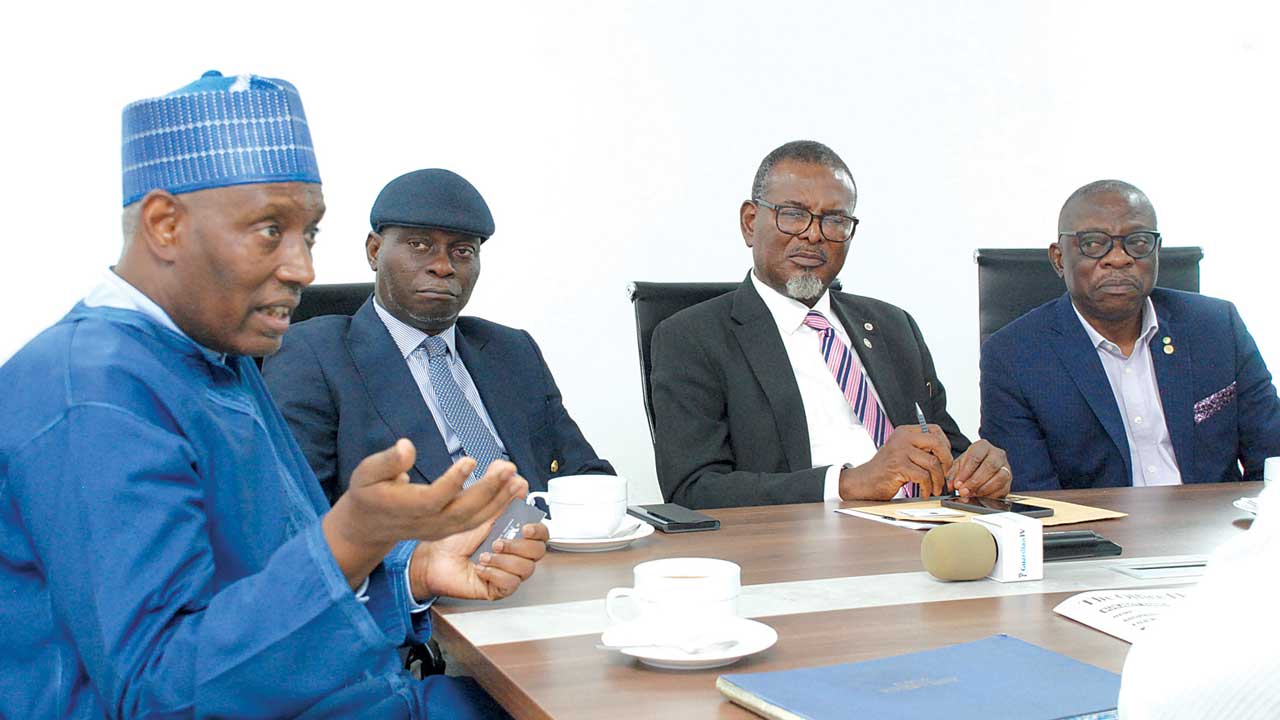
Chairman, National organising Committee, 2022 Directors’ Conference of the Institute of Directors (IoD) Nigeria, Lamis Dikko, has said 90 per cent of leaders in governance shy away from doing the right thing to turn the economy around.
He spoke during a courtesy visit to Rutam House Headquarters of The Guardian, yesterday, in Lagos, to announce the event, holding between November 24 and 25 in Nigeria’s economic capital, Lagos, with the theme: Corporate Governance and Digital Transformation: Leading Purposefully for Growth and Stability.
Dikko emphasised importance of leadership and the role it plays in digital transformation strategies for organisations vis-à-vis improving policy outcomes for economic development.
His words: “Politicians and directors know the right thing to do. And there is nothing you can do to change their attitude, except only the electorate that can, by exercising their mandate.
“Ninety per cent of them know the right thing to do, but just refuse to do it. What we are doing is to make sure government across the three tiers and people, at the very minimum, understand what risk they are individually carrying. They are not about the laws of corruption, but they don’t understand that even error of judgment constitutes an offence that can result in jail.”
He said the emerging Fourth Industrial Revolution (4IR) and challenges thrust on the world by COVID-19 pandemic have combined to alter requisite skills of leaders that could guide organisations through the trying times.
Dikko stressed that today’s leaders must be dynamic, have vision for a technology-driven future and be ready to purposefully lead these complex and innovative transformations.
According to him, the two-day event will be broken into four plenary sessions, to address the sub-themes: “The Fourth Industrial Revolution: Disruptive Technology and Board Readiness”; “Unlocking Millennial Directors Potentials: Building Corporate Governance Ethos in a Digital Economy”; “Directors’ Mastery of Environmental & Social Governance: Indicators that Impact Material Risks and Growth Opportunities” and “Entrenching Transformation and Sustainability in a Digital Economy: The Director’s Role.”
He hinted that this year’s event had been designed to attract professionals and leaders in the public and private sectors to drive key discussions.
Dikko added that young directors, entrepreneurs and millennials would leverage the conference, to be declared open by President Muhammadu Buhari, for mentorship, networking and knowledge expansion for sound corporate governance.
Obi of Onitsha and Chairman of International Breweries Plc., Igwe Alfred Nnaemeka Achebe, is chairing the opening session.
Also expected are the event are Deputy Secretary-General of United Nations (UN), Dr. Amina Mohammed; Senate President, Dr. Ahmad Lawan; Minister of Aviation, Hadi Sirika; Minister of Industry, Trade & Investment, Adeniyi Adebayo; Governor of Lagos State, Babajide Sanwo-Olu, as well as his Ogun and Anambra counterparts, Dapo Abiodun and Charles Soludo.
In his remarks, Director General/Chief Executive Officer of the Institute, Bamidele Alimi, said one of the areas IoD was influencing policies, especially in the area of governance, was joining the International Reporting Council to put in place a governance code for the public sector.
He said in 2018, the governance code for the private sector was approved and launched by government amid global acclaim.
Alimi confirmed that the Institute was part of the organisation working with the Financial Reporting Council to float a code of governance for the public sector, which no African nation has had.
According to him, the code of governance would also cover Non-for Profit Organisations (NPOs) and Non-Governmental Organisations (NGOs) as last leg of the exercise.
He expressed the hope that the code will, to a very large extent, work on strengthening the system, to resist a corrupt leader.



